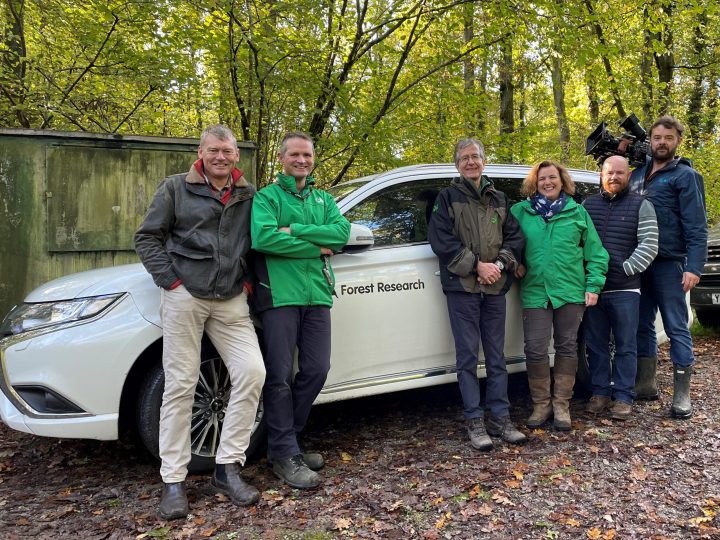
Countryfile presenter Tom Heap recently visited Forest Research to understand our work in protecting trees from climate change and disease. This included a trip to the top of the flux tower based in Forestry England’s Alice Holt Forest on the Hampshire/ Surrey border, which is not accessible to the public.
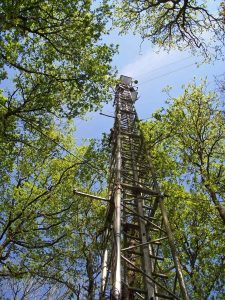
From here, climate change scientists measure the net flows of carbon dioxide between the whole forest ecosystem and the atmosphere to understand how the oak forest is reacting to environmental and climatic changes.
The measurements help the team to understand the carbon cycle of a typical broadleaf forest, and how the different components of the woodland are affected by the changing weather, by the way the woodland is managed, and by insects and by diseases. This includes the effect of the weather on phenology, the timing of natural cycles, for example variations in the date of oak bud-burst in the spring.
The scientists measure, in real time, the net flows of carbon dioxide between the forest and the atmosphere, using a technique that measures both atmospheric turbulence and fluctuations in the carbon dioxide concentrations in the air as it flows over and through the forest.
Other research includes the use of soil respiration chambers to measure how much carbon dioxide is being released from the forest floor, one of the components of the carbon cycle.
This long-term research has enabled scientists to build up a detailed picture of the carbon cycle of a typical oak forest. Find out more about the carbon flux monitoring work of the Climate Change Research Group at Forest Research.
The ‘Plant Britain Finale’ episode of Countryfile which featured Forest Research is available to watch on BBC iPlayer until October 2023.
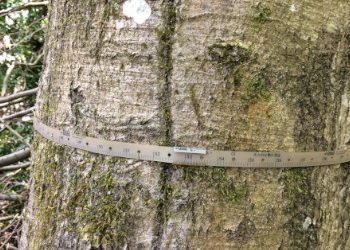
Forest Lab enables UK woodland managers to become volunteer ‘stewardship scientists’ by joining science projects, collaborating with researchers and sharing data to support woodland resilience.
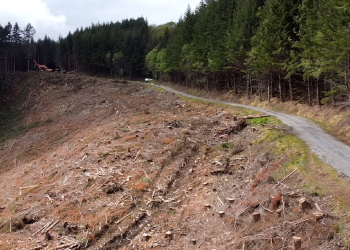
Explore our new case studies that demonstrate how forest adaptation measures can be applied to reduce the climate change risks faced at three different Scottish sites.
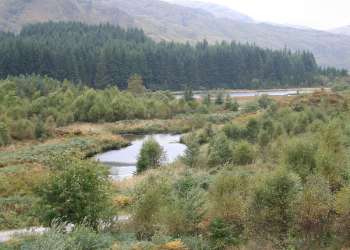
Forest Research are working closely with Forestry and Land Scotland to develop a forest restoration demonstration in Queen Elizabeth Forest Park as part of the Europe-wide, Horizon 2020 SUPERB project.

Forest Lab enables UK woodland managers to become volunteer ‘stewardship scientists’ by joining science projects, collaborating with researchers and sharing data to support woodland resilience.

Explore our new case studies that demonstrate how forest adaptation measures can be applied to reduce the climate change risks faced at three different Scottish sites.

Forest Research are working closely with Forestry and Land Scotland to develop a forest restoration demonstration in Queen Elizabeth Forest Park as part of the Europe-wide, Horizon 2020 SUPERB project.